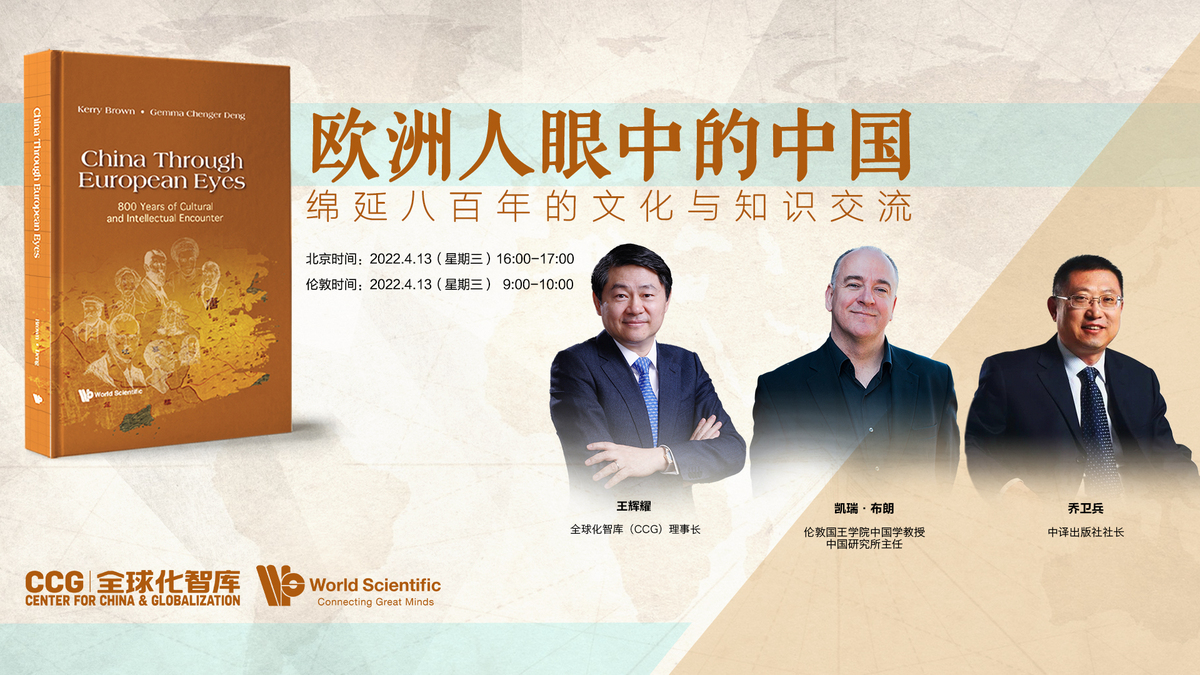China through European eyes: 800 years of cultural and intellectual encounter
chinadaily.com.cn | Updated: 2022-04-24 14:37

How the "Orient" was imagined by Europeans is an interesting and import story. How should we evaluate the difference between the West and the East? The answer to this question and many more can be found in Kerry Brown's book China Through European Eyes: 800 Years of Cultural and Intellectual Encounter.
On Apr 13th, the Center for China and Globalization (CCG) hosted a launch event featuring the release of China Through European Eyes: 800 Years of Cultural and Intellectual Encounter. The book has been jointly released by CCG and its publisher World Scientific Publishing Singapore. We invited the author of this book, Kerry Brown, professor of Chinese Studies and Director of the Lau China Institution at King's College, Qiao Weibing, president and editor-in-Chief of the China Translation & Publishing House, Angela Lixi Dong, assistant director of World Scientific Publishing Singapore and Wang Huiyao, CCG president to examine the book and discussed relevant topics both historical and current.
China Through European Eyes: 800 Years of Cultural and Intellectual Encounter provides a reader's perspective on the conceptualization of China by Europeans from the time of Marco Polo in the 13th century through 1970. With annotated excerpts of their key China related writings by sixteen highly influential Europeans in literature, philosophy and politics including Voltaire, Ricci, Leibniz, Montesquieu, Marx, Weber, Hegel, Barthes and Kristeva, this collection brings together the visions and ideas of individuals who had a unique impact upon European culture, which can help us answer the unanswerable question - "What is China?" - not just as a physical place, but as a civilization and culture.
Divided into five parts including "Origins", "Enlightenment Views", "Cultural Encounters in the Modern Era", "The Moderns", and "Talking about a Revolution: Maoist China". This important selection allows for comparison of perspectives across different times in Europe, enabling readers to map out continuities and evolutions of attitudes towards China, demonstrating that contemporary European attitudes towards China have deep roots. With an extensive introduction, full bibliography and comprehensive annotations on original texts, this book will be of interest to anyone engaged in exploring the role of China in the world today, particularly those interested in how the crucial relationship between China and Europe has developed over time.
The coronavirus pandemic has disrupted and changed the way we communicate, but it has also made communication more important than ever. With a comprehensive introduction looking at the context of European engagement with China, this book also provides explanations and notes for each of the selections as well as suggestions for further reading. This book also comes at a very poignant time and is helpful for both China and Europe to understand each other and deepen their bilateral relationship.
























